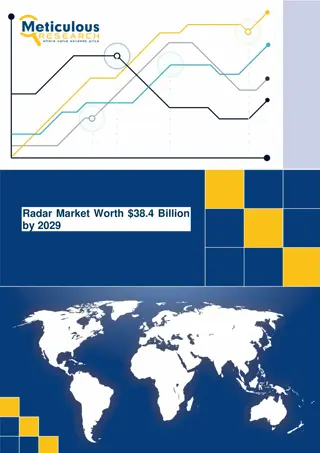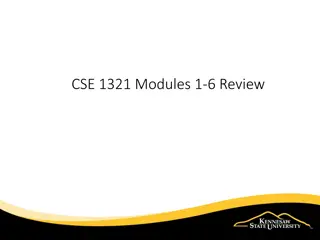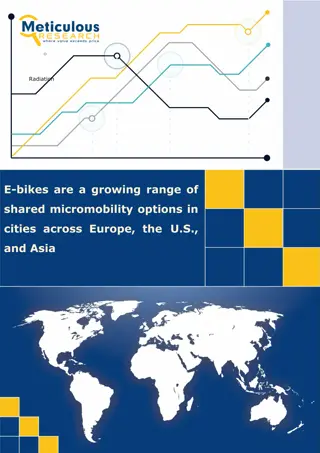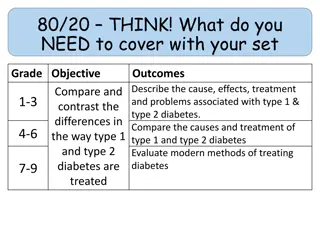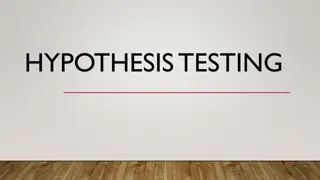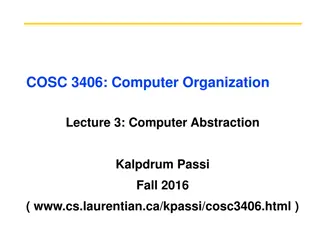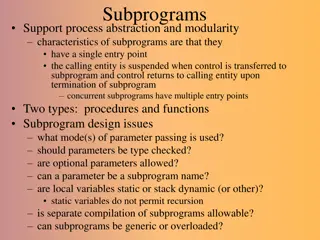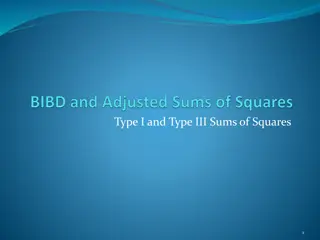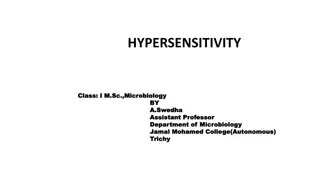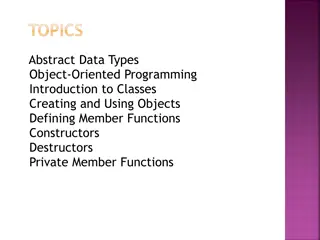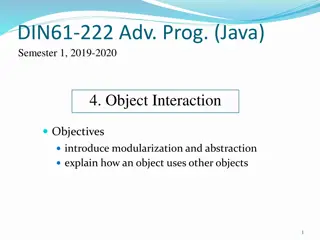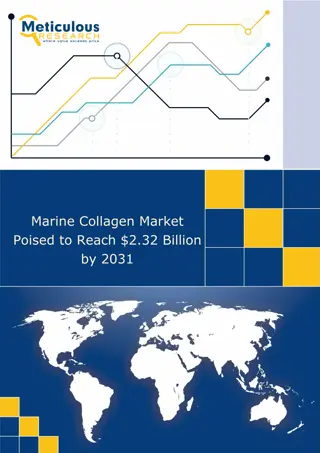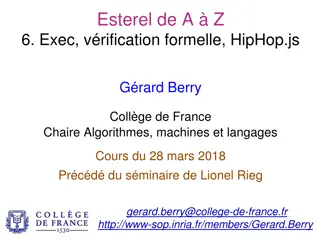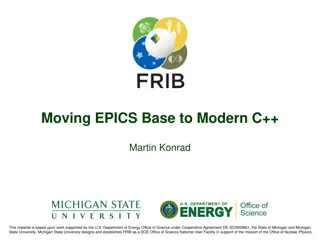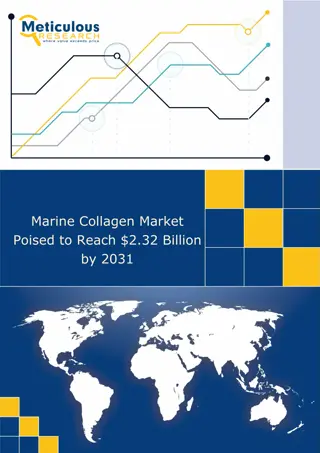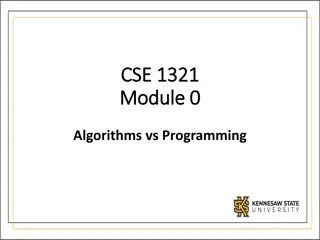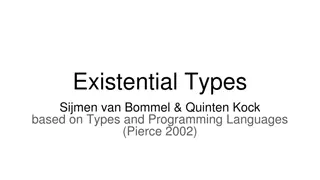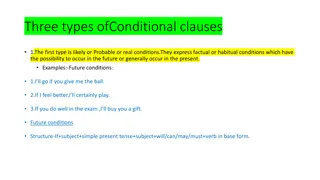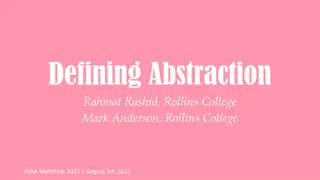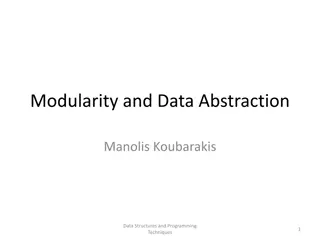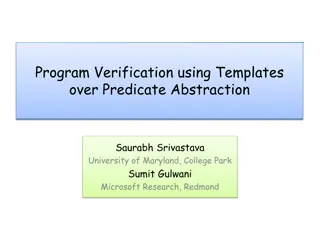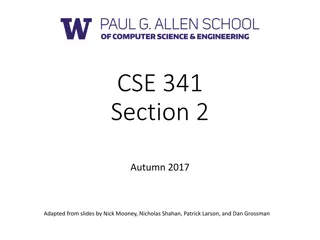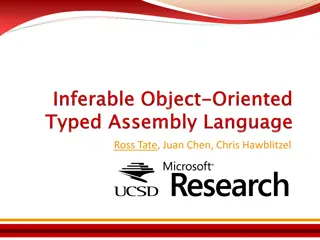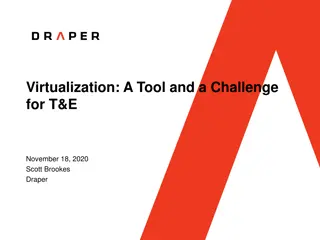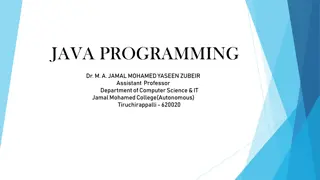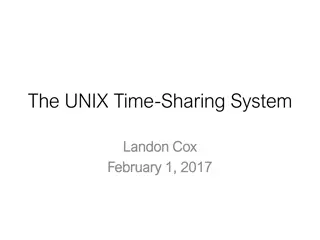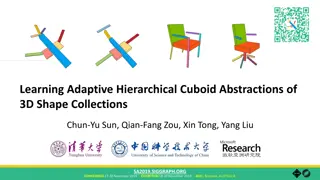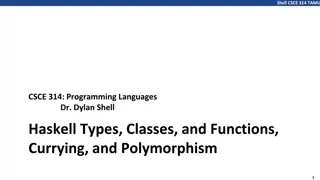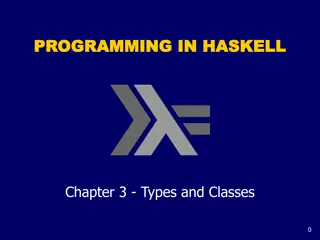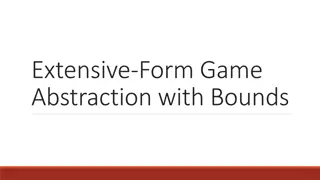E-bikes Market to be Worth $88.3 Billion by 2030—Exclusive Report by Meticulous Research®”
E-bikes Market by Propulsion Type (Throttle-assisted and Dual Mode), Class, Power Output, E-bike Type, Battery Type, Motor Type (Hub Motors and Mid-drive Motors), Structure, Charging Type, Charging Mode, and End User - Global Forecast to 2030\n
0 views • 6 slides
Water Quality Testing Market: Test Type and Industry Sector
Meticulous Research\u00ae\u2014a leading global market research company, published a research report titled, \u2018Water Quality Testing Market by Offering, Test Type (Physical Test, Chemical Test), Device Type, Product Type (pH Meter, TOC Analyzer), Sector (Laboratory, Government, Environmental Ins
4 views • 3 slides
Understanding Algorithms and Programming Fundamentals
Learn about algorithms, programming, and abstraction in computing. Explore the definition and properties of algorithms, the relationship between algorithms and programming, and the concept of abstraction. Discover how algorithms are like recipes and how abstraction simplifies complex tasks in comput
1 views • 17 slides
Network Function Abstraction A delicate question of (CPU) affinity?
Exploring the delicate balance of CPU affinity in network function abstraction, including challenges, benefits, and solutions like CPU pinning for network workloads. Learn about the impact on performance and scalability, as well as the importance of proper configuration in virtual and physical envir
3 views • 40 slides
Lower Your Patients' Risk of Type 2 Diabetes with CDC's National DPP Lifestyle Change Program
Lower the risk of type 2 diabetes in your patients by implementing the CDC's National Diabetes Prevention Program (National DPP). This evidence-based lifestyle change program focuses on healthy eating and physical activity, helping participants make lasting changes to prevent or delay type 2 diabete
3 views • 11 slides
Radar Market Worth $38.4 Billion by 2029
The Radar Market by Type, Dimension Type, Frequency Band Type, Installation Type, End-user, and Geography\u2014Global Forecast to 2029.
5 views • 3 slides
Understanding Algorithms and Abstraction Concepts in Programming
Exploring algorithms as logical steps to accomplish tasks and abstraction as a way to group concepts for clarity in programming. Dive into flowcharts for sorting algorithms, pseudocode skeletons, and code snippets in various languages like C#, Java, and C++. Learn about handling variables and user i
2 views • 48 slides
E-bikes Market is projected to reach $88.3 billion by 2030
E-bikes Market by Propulsion Type (Throttle-assisted and Dual Mode), Class, Power Output, E-bike Type, Battery Type, Motor Type (Hub Motors and Mid-drive Motors), Structure, Charging Type, Charging Mode, and End User - Global Forecast to 2030\n
0 views • 5 slides
Understanding Diabetes: Type 1 vs. Type 2, Causes, Treatments, and Modern Methods
Explore the differences between type 1 and type 2 diabetes, including causes, effects, treatments, and associated problems. Compare the causes and treatments of both types of diabetes while evaluating modern methods of treatment. Understand the symptoms, lifestyle factors, and risk factors related t
0 views • 18 slides
Understanding Type I and Type II Errors in Hypothesis Testing
In statistics, Type I error is a false positive conclusion, while Type II error is a false negative conclusion. Type I error occurs when the null hypothesis is incorrectly rejected, leading to a conclusion that results are statistically significant when they are not. On the other hand, Type II error
0 views • 6 slides
Understanding Diabetes: Types, Causes, and Prevention
Diabetes is a disease that affects how the body uses glucose, the main source of fuel. There are two main types of diabetes – Type 1 and Type 2. In Type 1 diabetes, the pancreas fails to produce insulin, while in Type 2, the body's cells do not respond properly to insulin. Uncontrolled diabetes ca
1 views • 14 slides
Understanding Computer Abstraction and Performance Metrics
Computer abstraction, instruction count, CPI, and performance metrics like clock cycles, CPU time, and program execution are crucial concepts in computer organization. Through examples and detailed explanations, this lecture explores how architecture, instruction sets, compilers, and algorithms impa
0 views • 27 slides
Overview of Subprograms in Software Development
Subprograms in software development provide a means for abstraction and modularity, with characteristics like single entry points, suspension of calling entities, and return of control upon termination. They encompass procedures and functions, raising design considerations such as parameter passing
4 views • 25 slides
Understanding Type I and Type III Sums of Squares in Experimental Design
Exploring the significance of Type I and Type III sums of squares in unbalanced experimental designs, highlighting the potential biases in treatment effect estimates and the differences in partitioning variation based on the order of terms entered in the model.
6 views • 26 slides
Computational Thinking, Algorithms & Programming Overview
This unit covers key concepts in computational thinking, including decomposition, abstraction, and algorithmic thinking. Decomposition involves breaking down complex problems, abstraction focuses on identifying essential elements, and algorithmic thinking is about defining clear instructions to solv
1 views • 5 slides
Understanding Hypersensitivity Reactions in Immunology
Hypersensitivity in immunology refers to an altered immune response against antigens, leading to hyperreactivity and immunopathology. This article delves into the different categories of adaptive hypersensitivities, focusing on Immediate (Type I), Antibody-Mediated Cytotoxic (Type II), and Immune Co
0 views • 6 slides
Introduction to Object-Oriented Programming and Data Abstraction
Introduction to object-oriented programming concepts including classes, objects, member functions, constructors, destructors, and abstract data types. Exploring the principles of abstraction in software development, passing objects to functions, and understanding the limitations of procedural progra
0 views • 47 slides
Understanding Modularization and Abstraction in Object-Oriented Programming
Modularization in programming involves breaking down complex problems into simpler sub-parts, while abstraction allows combining low-level details into higher levels. By using modules and abstract classes, software development becomes more manageable and efficient, especially in object-oriented prog
0 views • 39 slides
Marine Collagen Market Expected to Surpass $2.32 Billion by 2031
Meticulous Research\u00ae\u2014a leading global market research company, published a research report titled, \u2018Marine Collagen Market Size, Share, Forecast, & Trends Analysis by Type (Type I, Type II, Type III), Category (Fish, Algae), Source (Sk
0 views • 3 slides
Formal Verification and Automata Abstraction in Esterel
This content delves into the applications of formal verification and automata abstraction in Esterel, focusing on techniques such as verification by abstraction of automata, boolean verification using BDDs, bounded model checking in SAT/SMT, and more. The work of Gérard Berry at the Collège de Fra
0 views • 38 slides
Transitioning EPICS Base to Modern C++ for Enhanced Performance
Enhance your EPICS Base system by utilizing modern C++ features such as strict type checking, zero-cost abstraction, templates, and more. Learn the motivations behind switching to C++ and explore the new C++ features for improved efficiency and maintainability.
1 views • 16 slides
Marine Collagen Sector Poised for $2.32 Billion by 2031
Meticulous Research\u00ae\u2014a leading global market research company, published a research report titled, \u2018Marine Collagen Market Size, Share, Forecast, & Trends Analysis by Type (Type I, Type II, Type III), Category (Fish, Algae), Source (Sk
0 views • 3 slides
Understanding Algorithms and Programming: A Visual Introduction
Explore the fundamental concepts of algorithms and programming through visual representations and practical examples. Learn about algorithmic thinking, abstraction, recipe-like algorithms, and the importance of logical steps in accomplishing tasks. Discover how algorithms encapsulate data and instru
1 views • 17 slides
Satisfiability Modulo Abstraction for Separation Logic with Linked Lists
This study explores the application of satisfiability modulo abstraction in separation logic with linked lists. It presents a technique using abstract interpretation concepts to handle separation logic formulas beyond previous methods, specifically focusing on over-approximating heaps that satisfy t
0 views • 41 slides
Analysis of Data Manager Survey Results in VQI Abstraction
Survey results gathered from 942 notified Data Manager users in VQI abstraction revealed insights on responsibilities, experience levels, backgrounds, and facility types. Responses indicate varying levels of involvement with data collection, team size, and number of facilities managed, providing val
0 views • 27 slides
Understanding Existential Types and Type Manipulation in Programming Languages
Explore the concepts of existential types, type abstraction, type ambiguity, packing, and unpacking in the context of programming languages. Learn how to work with hidden types, universal types, and the nuances of type manipulation. Examples and illustrations are provided to enhance understanding.
0 views • 17 slides
Types of Conditional Clauses and Examples
This article explores three types of conditional clauses - likely conditions, unreal conditionals, and impossible conditionals - with examples and structures for each type. The first type involves factual or habitual conditions likely to occur in the future or present. The second type deals with hyp
0 views • 8 slides
Exploring Abstraction in Mathematics: Insights from MAA MathFest 2022
Delve into the concept of abstraction with a focus on diverse perspectives, historical influences, pedagogical approaches, and the process of abstraction itself as discussed at MAA MathFest 2022. Engage with enlightening comparisons and references shedding light on this fundamental mathematical prin
0 views • 7 slides
Understanding Portraits: Realism, Abstraction, and Representation
Delve into the world of portraiture with a focus on realism and abstraction, exploring how artists like Cézanne, Vermeer, and Picasso depict their subjects. Learn the significance of portraits, the difference between realistic and abstract art, and the impact of color on portraying emotions and pro
0 views • 7 slides
Understanding Modularity and Data Abstraction in Programming
Learn about the importance of procedural abstraction, information hiding, modules, and abstract datatypes in programming. Discover how these concepts help in structuring large programs, improving maintainability, and enhancing data organization and operation control.
0 views • 56 slides
Program Verification Using Templates Over Predicate Abstraction
This research explores a technique that allows for inferring invariants with arbitrary quantification and boolean structure, improving the state-of-the-art in program verification. It can infer weakest preconditions, helping with debugging and analysis by discovering worst-case inputs and missing pr
0 views • 32 slides
Understanding Type Generality and Equality Types in Programming
Delve into the concepts of type synonyms, type generality, and equality types in programming languages, exploring how type systems handle different data types and relationships. Learn about the more general rule, type variables, and the significance of consistency in type hierarchies.
0 views • 14 slides
Typed Assembly Language and Type Inference in Program Compilation
The provided content discusses the significance of typed assembly languages, certifying compilers, and the role of type inference in program compilation. It emphasizes the importance of preserving type information for memory safety and vulnerability prevention. The effectiveness of type inference me
0 views • 17 slides
Understanding Virtualization: Hardware Abstraction and Hypervisor Concepts
Dive into the world of virtualization with a focus on hardware abstraction and hypervisor technology. Explore the definitions and examples of hardware virtualization, hypervisors, and hardware abstraction, shedding light on how they enable multiple operating systems to coexist on a single physical m
0 views • 21 slides
Fundamentals of Object-Oriented Programming in Java
Object-Oriented Programming (OOP) is a methodology that simplifies software development by using classes and objects. This paradigm includes concepts like Object, Class, Inheritance, Polymorphism, Abstraction, and Encapsulation. Other terms used in OOP design include Coupling, Cohesion, Association,
0 views • 54 slides
Evolution of Data Abstraction in Operating Systems
Explore the evolution of central data abstraction in operating systems from the complexity of Multics to the simplicity and elegance of Unix. Discover how files are managed in Unix, the tradeoffs in data-sharing methods, and the impacts on efficiency and protection.
0 views • 41 slides
Innovative 3D Shape Abstraction Research at SIGGRAPH 2019
Explore the cutting-edge research on adaptive hierarchical cuboid abstractions and 3D shape structures presented at SIGGRAPH 2019. The goal is to construct a good 3D abstraction for shapes, focusing on compactness, expressiveness, adaptiveness, and consistency.
0 views • 56 slides
Understanding Haskell Types, Classes, Functions, and Polymorphism
In Haskell, types are collections of related values, ensuring type safety through compile-time type inference. Type errors occur when functions are applied to arguments of the wrong type. Annotations help define types, and Haskell offers basic types like Bool, Char, String, Int, Integer, Float, and
0 views • 30 slides
Understanding Types and Classes in Haskell Programming
Types in Haskell are names for collections of related values, allowing for safer and faster programs by catching errors at compile time. Haskell supports basic types like Bool, Char, String, Int, Integer, and Float, as well as list and tuple types. Type errors occur when functions are applied to arg
0 views • 27 slides
Understanding Game Abstraction and Equilibrium
Extensive-Form Game Abstraction with Bounds delves into the complexities of game abstraction, exploring theoretical guarantees, algorithmic challenges, and equilibrium-finding processes. The difficulty of game abstraction is examined, highlighting issues such as pathologies and the struggle to optim
0 views • 22 slides





